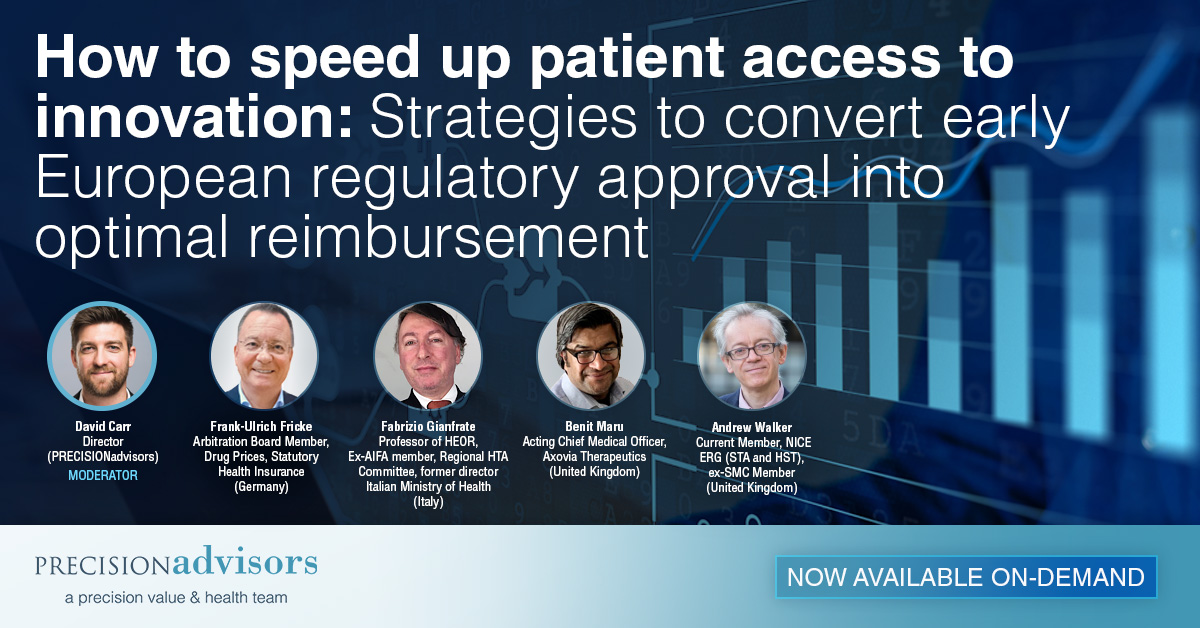In Europe, Conditional Marketing Authorisation (CMA) offers an earlier regulatory nod from the European Medicines Agency (EMA) with lower data requirements than full approval, and with it, the opportunity for gaining earlier patient access. But Health Technology Assessment (HTA) bodies have scrutinized subsequent national-level evidence submissions and have often awarded sub-optimal reimbursement outcomes. This results in inequalities in patient access and impacts the incentives for manufacturers to continue to innovate. So what to do?
In this webinar moderated by PRECISIONadvisor’s David Carr, we are joined by European payers and industry representatives from Germany (Frank-Ulrich Fricke), Italy (Fabrizio Gianfrante) and the UK (Benit Maru and Andrew Walker) to explore what strategies and solutions there are to this problem. We’ll look at the current regulatory and reimbursement landscape then see how different countries have sought and will seek to address the gap in evidence requirements between the EMA and HTA bodies to answer the following questions:
- What are the opportunities for early access/conditional reimbursement at the national level?
- How do innovation funds support timely patient access?
- Which managed entry agreements are a good option when data is uncertain?
- How can real-word evidence (RWE) be included in HTA?
- What HTA reforms are needed to keep pace with innovation and make for a more equitable access environment?
The discussion will conclude with a live Q&A.
—




